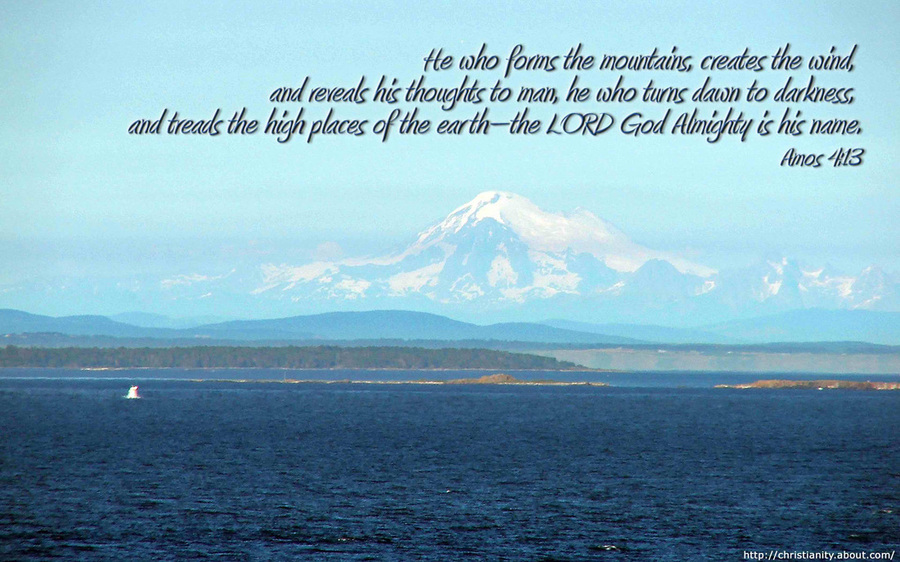The Book of Amos

The concurrent reigns of Uzziah of Judah and Jeroboam II of Israel were marked by a period of peace and prosperity. Prosperity was accompanied by an almost unprecedented degree of social corruption, and it is to this that the book of Amos is addressed.
Amos was a herdsman from the small town of Tekoa; he was not a man of the court like Isaiah, or a priest like Jeremiah. Though he lived in Judah, he was sent to announce God's judgment on the northern kingdom (Israel).
Amos prophesied during the reigns of Uzziah and Jeroboam II. The main part of his ministry was pobably carried out about 760-750B.C., and this book can be dated during that time.

Chapter 1-3, Amos came as the days of the continuously wicked Northern Kingdom were winding down. The people were religious but it was sadly superficial. Amos announces that the neighboring nations would be punished; there are many of them including Damascus, Gaza, Edom, and Tyre.
In chapters 4-8, Amos warns that Israel will be destroyed, and gives examples of this judgment. Amos comes, announces God’s coming judgment to the Northern Kingdom and uses the phrase, “the day of the Lord” referring to God intervening to punish and judge the wicked city, which would eventually be exile by the Assyrians. “Seek good and not evil, that you may live; And thus may the LORD God of hosts be with you, Just as you have said!” (5:14).
In chapter 9, Amos tells of the restoration and hope of Israel, “In that day
I will raise up the fallen booth of David, And wall up its breaches; I will
also raise up its ruins And rebuild it as in the days of old” (9:11).
In chapters 4-8, Amos warns that Israel will be destroyed, and gives examples of this judgment. Amos comes, announces God’s coming judgment to the Northern Kingdom and uses the phrase, “the day of the Lord” referring to God intervening to punish and judge the wicked city, which would eventually be exile by the Assyrians. “Seek good and not evil, that you may live; And thus may the LORD God of hosts be with you, Just as you have said!” (5:14).
In chapter 9, Amos tells of the restoration and hope of Israel, “In that day
I will raise up the fallen booth of David, And wall up its breaches; I will
also raise up its ruins And rebuild it as in the days of old” (9:11).
Foreshadowing of Jesus
The Book of Amos ends with a glorious promise for the future. “’I will
plant Israel in their own land, never again to be uprooted from the land I have given them,’ says the LORD your God” (9:15). The ultimate fulfillment of God’s land promise to Abraham (Gen. 12:7; 15:7;
17:8) will occur during Christ’s millennial reign on earth (see Joel 2:26,27). Revelation 20 describes the thousand-year reign of Christ on the earth, a time of peace and joy under the perfect government of the Savior Himself. At that time, believing Israel and the Gentile Christians will be combined in the Church and will live and reign with Christ.
continue to Obadiah...
The Book of Amos ends with a glorious promise for the future. “’I will
plant Israel in their own land, never again to be uprooted from the land I have given them,’ says the LORD your God” (9:15). The ultimate fulfillment of God’s land promise to Abraham (Gen. 12:7; 15:7;
17:8) will occur during Christ’s millennial reign on earth (see Joel 2:26,27). Revelation 20 describes the thousand-year reign of Christ on the earth, a time of peace and joy under the perfect government of the Savior Himself. At that time, believing Israel and the Gentile Christians will be combined in the Church and will live and reign with Christ.
continue to Obadiah...